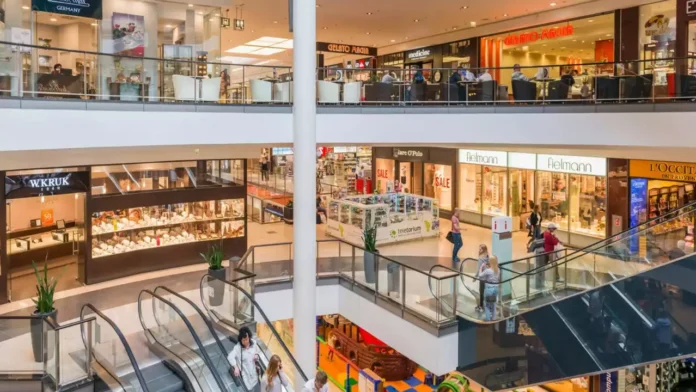Responding to the ever-changing landscape of the market, the increasing appeal of digital-first brands, and the expanding GenZ consumer demographic, shopping mall developers are actively embracing online-only direct-to-consumer (D2C) brands into physical spaces.
“D2C brands are going through the next stage of their development and realising that, in order to reach more customers and expand into new geographic areas, an all-channel approach is required. Increasingly D2C brands are moving offline these days,” according to Rajneesh Mahajan, CEO of Inorbit Malls.
Mall developers said they are implementing short-term leasing agreements, pop-up stores, and experimental store models to offer D2C brands the opportunity to test waters before making long-term leasing commitments.
V Muhammad Ali, CEO of Forum Malls, Prestige Group, revealed that the company has partnered with three D2C brands through the retail solutions firm Litestore. “This company provides stores to D2C brands on a monthly or short-term basis. Litestore leases space from malls and designs the stores to be appealing to a wide audience. Through this model, we feature D2C brands spanning various categories such as home furnishings and decor, apparel, and electronics in our malls,” he elaborated.
Continue Exploring: Jewellery retailers embrace mall expansion as consumers flock to established brands
Ali further mentioned that numerous D2C brands are expressing interest in securing permanent space. Concurrently, the shopping mall is also open to broadening its temporary space options to enhance its offerings.
Arjun Gehlot, Director of Ambience Group, emphasized the advantages of short-term lease agreements for both parties involved. “They allow us to continuously offer new experiences to consumers. However, selecting D2C brands for our malls can be challenging due to our full capacity,” he stated. Gehlot highlighted that the mall has introduced an innovative temporary leasing concept called ‘Anecdotes’ in Gurgaon, which has received an excellent response.
Anshuman Magazine, Chairman and CEO of CBRE for India, South-East Asia, Middle East, and Africa, highlighted the exposure that pop-up stores provide to a wide and varied customer demographic. He noted that if a mall’s target audience matches the brand’s ideal customer profile, a pop-up store can strategically connect with this existing base in a physical environment.
Nirzar Jain, Chief Leasing Officer at Nexus Malls, stated that the company has been exploring pop-up stores as part of its strategy. Presently, the shopping center conglomerate prioritizes opening stores by category and favors long-term agreements. Nevertheless, the brand also considers shorter 11-month contracts when necessary. Recently, Nexus Malls introduced Newme, an Insta-first brand, at Nexus Elante and has initiated the offline presence of various D2C brands including Zouk, Neeman’s, and others.
Mahajan from Inorbit also mentioned that while the brand favors long-term partnerships, it also provides promotional spaces or temporary stores to D2C retailers.
A spokesperson from Litestore remarked, “We collaborate with D2C brands that have attained a certain level of maturity and can maintain operations for at least a year. Initially, we operated on a brand rotational model, but as the market has evolved, we are focusing more on establishing long-term partnerships.”
Prestige Group’s Ali said that D2C brands are remarkably outperforming other brands in the same category, with sales per square foot up to 25% higher. “Young people are the target market for D2C brands. They are engaging in deeper customer connections and personalising products.
Aditi Murarka, the founder of Nestasia, an e-commerce home decor brand currently operating four stores, intends to expand this number to 15 by the end of the fiscal year. She noted that the brand’s stores have been outperforming other established brands in the same category within the same malls, with sales ranging from 25 to 50 percent higher per square foot.
Newme, a fast fashion brand with four stores, is experiencing a significant offline revenue contribution. Shivam Tripathi, co-founder of the startup, revealed that while the brand initially opened its first store on a shorter lease agreement, it is now prioritizing long-term partnerships.
Tripathi remarked that malls are currently concentrating on attracting younger demographics and favoring D2C brands that appeal to this audience. Pradeep Krishnakumar, co-founder of the accessories brand Zouk, also highlighted that D2C brands will be instrumental in drawing Gen Z and millennial consumers, who possess the purchasing power, to malls.
Krishnakumar further mentioned that he expects offline sales to account for about 25 percent of the overall business in the coming years. Currently, Zouk has three outlets and plans to increase the count to 20.
Harshil Salot, co-founder of The Sleep Company, revealed that the brand currently operates over 60 stores and intends to raise this number to 150 by the end of the fiscal year. The sleep solutions startup, which currently operates approximately 85 percent of its stores on high streets, is now looking to malls for its next phase of expansion.
Ashmeer Sayyed, Chief Retail Officer at Damensch, revealed that the menswear brand is aiming to expand its presence to 700 multi-brand outlets. Currently, the retailer operates in 300 MBOs and operates 10 exclusive outlets. Regarding offline sales, he mentioned that the retailer currently derives 14 percent of its overall revenues from offline channels. The brand made its offline debut in 2022.
Continue Exploring: D2C brands shell out 30-45% commission for quick-commerce platform listings





